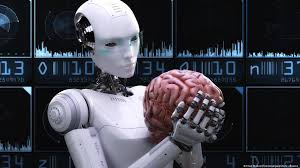There is a ton being written about AI these days. Makes sense. It has already had a huge impact on how we search, how we work, how we create – and we have only seen the tip of the iceberg. The recent advances are astounding and there can be no doubt that we are witnessing something big. But today, I want to take a moment to consider the name we have applied to this technology.
Generally speaking, “artificial” has negative connotations and is used to describe something that is not real or genuine. Artificial sweetener, despite fewer calories than sugar, is viewed by many as bad. Artificial flowers are derided by purists for failing to live up to the beauty of the real thing. In the context of AI, I get that we are using “artificial” to signify “non-human”. But is it really “not real”?
Programmers have written code to perform certain tasks. They fed data into these systems to inform the output they produce. On top of that, they have created machine learning to give such systems the ability to write code for themselves to perform such tasks in a better or more efficient way in subsequent iterations. Sounds like it is working exactly as designed. Nothing artificial here.
We send our children to school to learn. We determine which courses to teach them and the curricula for each individual course. They ingest this data and, with any luck, synthesize it to find connections between seemingly unrelated concepts. Often, they grow up and create output in the form of new ideas, materials, products, etc. as a result of our education system.
To me, there is nothing artificial or fake about what these new systems are doing. If we are trying to distinguish between humans and computers, maybe “computer intelligence” would be a more appropriate name for these systems.
What do you think?
Frosty

No comments:
Post a Comment